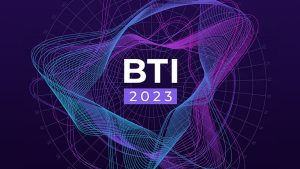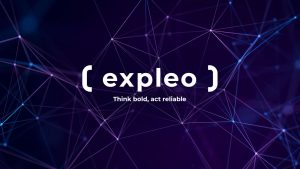That’s what Pablo Picasso thought, and we agree with him. Whether you’re creating a modernist masterpiece or trying to accelerate digital innovation in your engineering business, the point remains the same: you don’t have to start from scratch.
The problem is, it doesn’t feel like that. When you’re taking on a digitalisation project, you see it through the lens of your business and industry. You see the specific challenges that need fixing and think it’s on you to solve them — without so much as a roadmap.
But that’s not true. Innovations in digital engineering are happening every day in multiple sectors. So rather than trying to invent something brand new, you can spend your time adapting something that already works to do exactly what you need it to.
We spoke with Christophe Cazes, Global Head of Innovation at Expleo to find some examples of how cross-industry innovation sharing can:
- Lower development costs
- Accelerate time-to-market
- Speed up the pace of digitalisation projects for OEMs and prime suppliers.
Read on to learn more.

What aerospace can learn from automotive
The demand for air travel is expected to double by 2040 — with over 8bn passengers taking to the skies each year. That’s going to require the production of tens of thousands of new aircraft — all which must be compliant with increasingly stringent safety and sustainability requirements.
How do aircraft manufacturers deal with this increase in demand, while improving quality and keeping costs under control?
You won’t find the answer by looking at your competitors. They’re all looking at the same challenges as you.
But glance across to the automotive industry. It’s ahead of aerospace in product development speed, in the removal of endless prototyping loops, in making functional and industrial validations 100% numerical, and in things like chain automation/robotisation and logistics flow optimisation. All are essential in standardising production at scale and maximising efficiency.
By understanding how automotive OEMs integrate these digital tools and technologies into their advanced project labs, product development centres and operations, aerospace manufacturers can get to the right answer faster. And also avoid the mistakes other businesses made first time round, smoothing the process of change management.
At Expleo, we’re always looking for ways to apply cross-industry knowledge to accelerate digital innovation elsewhere.
At our Test and Simulation Centre, we’re experimenting with digital prototyping and simulations to support development of the Future Combat Air System. These technologies can speed up development times and lower costs by reducing the need for expensive physical tests.
And the lessons we’re learning here have clear applications for other industrial sectors. For instance, our experience with virtual testing could be used by OEMs to experiment with faster, low-cost manufacturing methods — replacing traditional, full-scale testing.
How industry can manage skills shortages ?
There’s pressure on finding and retaining talent across the industrial sector. This is felt particularly in the marine sector where the EU’s USWE report has highlighted a scarcity of skilled resource for shipbuilding. And that means market pressures will become more acute in multiple areas — from improving environmental performance to adopting new tech to reducing time to market.
The solution can’t be ‘magic’. No one can simply conjure up suitably qualified and experienced personnel out of thin air. Instead, marine businesses need to think cross-industry — and avoid focusing exclusively on the niche skillsets of their industry.
By considering candidates with fundamental engineering skills and digital skills, marine businesses can open themselves up to a far wider talent pool — and then train candidates with the required specialism. In fact, creating mixed teams featuring both specialists from marine sector and experts from automotive or other industrial sectors will foster the cross-fertilisation of skills.
It’s something we’ve done here. We engaged Lloyd’s Maritime Academy to deliver training to our professional mechanical engineers, so they have the domain knowledge to work with marine engineers in blended teams. This included upskilling them for digital so they had experience with industry-related technologies, such as Robotics, Data Analytics, and AI.
This led to improved design quality in the naval sector. While the marine teams had already adopted tools and methods such as CAD, FEA and CFD, for some aspects of the design process, the mechanical engineers with automotive and aerospace backgrounds developed this further.
By integrating engineering functions’ data into these tools, the specialist marine teams were able to create a ‘graphical database’ to store information on manufacturing process times, tolerances, material data, suppliers, and costs. This allowed them to optimise the overall system design without compromising performance.
Get to what works…now
At Expleo, cross-industry idea sharing is central to what we do. We have deep digital and engineering expertise working across a wide range of industrial and non-industrial sectors. So, even when a challenge feels like it’s brand new, we’ve got the ability to look for similar challenges in other industries to shine a light on the best way forward.
It’s how we can help you get to what works, right now.
Related insights
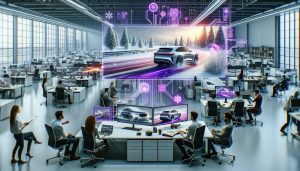
Simplifying data analysis to enhance decision-making: how we helped automotive engineers make smarter, faster decisions.
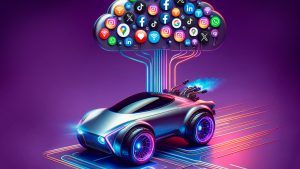
How Generative AI can proactively address issues to enhance customer satisfaction
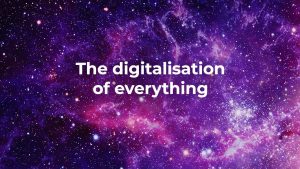
Industry report: The digitalisation of everything

Don’t delay digital. To solve today’s challenges, industrial companies need a new set of skills.

From pilot projects to scale: how industrial businesses can put the right technology to work.
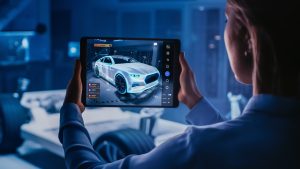
Ignore what you do and listen to the data: how we used big data to start the smart factory process for a gigafactory


